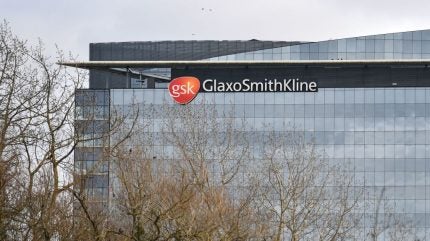
Just a day after dropping a $625m cancer asset, GSK has inked a deal worth a potential $2bn to acquire Boston Pharmaceuticals’ efimosfermin, a drug ready to hit Phase III trials for the treatment of liver disease.
The UK big pharma company will pay $1.2bn upfront for Boston’s subsidiary BP Asset IX, which will give the company access to efimosfermin. GSK has also agreed to pay additional milestone payments totalling $800m, along with tiered royalties to Novartis, which originally owned the therapy.

Discover B2B Marketing That Performs
Combine business intelligence and editorial excellence to reach engaged professionals across 36 leading media platforms.
Shares in London-listed GSK opened relatively unchanged following the news, though climbed into the mid-morning to a share price high of £1,382.00 (correct at 11am GMT+1). The company has a market cap of £56.98bn.
Efimosfermin is being developed to treat and prevent the progression of steatotic liver disease (SLD), a build-up of fat in liver cells. SLD is a broad disease term used to encompass various causes of fat accumulation in the liver. If untreated, fat build-up in cells can progress to more severe stages that include fibrosis and cirrhosis.
GSK’s new asset is taken once monthly via a subcutaneous injection. Efimosfermin is a long-acting variant of fibroblast growth factor 21 (FGF21) that is designed to regulate key metabolic pathways to decrease both liver fat and inflammation, and reverse liver fibrosis.
The therapy has already performed well in a Phase II trial (NCT06920043) in patients with moderate-to-advanced (F2 or F3) metabolic dysfunction-associated steatohepatitis (MASH), a form of SLD. Data, posted by Boston in November 2024, demonstrated that efimosfermin has ‘significant therapeutic potential’ in liver disease. Of the 31 patients receiving the injection, 14 had a one-stage or greater improvement in fibrosis without MASH progression, compared to just seven out of 34 in the placebo group.

US Tariffs are shifting - will you react or anticipate?
Don’t let policy changes catch you off guard. Stay proactive with real-time data and expert analysis.
By GlobalDataWhilst there are other FGF21 drugs in development – such as Akero Therapeutics efruxifermin and 89bio’s pegozafermin – Boston designed efimosfermin with an extended half-life to allow monthly dosing while Akero and 89bio’s assets require weekly dosing, GSK’s drug could be set for an early market advantage. GSK has also earmarked efimosfermin’s potential to combine with its in-house siRNA therapeutic GSK’990 to address more advanced stages of SLD.
According to GlobalData estimates, the MASH market is anticipated to reach sales of $25.7bn in 2032 across the seven major markets (7MM: US, France, Germany, Italy, Spain, the UK, and Japan). The market was revived in March 2024 when Madrigal Pharmaceuticals’ Rezdiffra (resmetirom) won the first US Food and Drug Administration (FDA) approval for a MASH treatment. GlobalData noted an increase in drug partnership deal values in the MASH arena in 2024. Eli Lilly continued this trend into this year when it agreed to pay $630m for a Phase I RNA-based candidate from South Korea-based biotech OliX Pharmaceuticals in February 2025.
GSK said the purchase of Boston’s drug aligns with its R&D focus on “science related to the immune system”. The deal agreement comes just a day after the drugmaker dropped an anti-TIGIT antibody it previously attained the rights for in a $625m upfront deal.
GSK’s chief scientific officer Tony Wood said: “Efimosfermin will significantly expand our hepatology pipeline and provide us the opportunity to develop a new potential best-in-class medicine with its first launch expected in 2029. It complements GSK‘990, also in development for alcohol-related liver disease and MASH, offering GSK options to develop both monotherapy and potential combinations to improve patient outcomes.”




